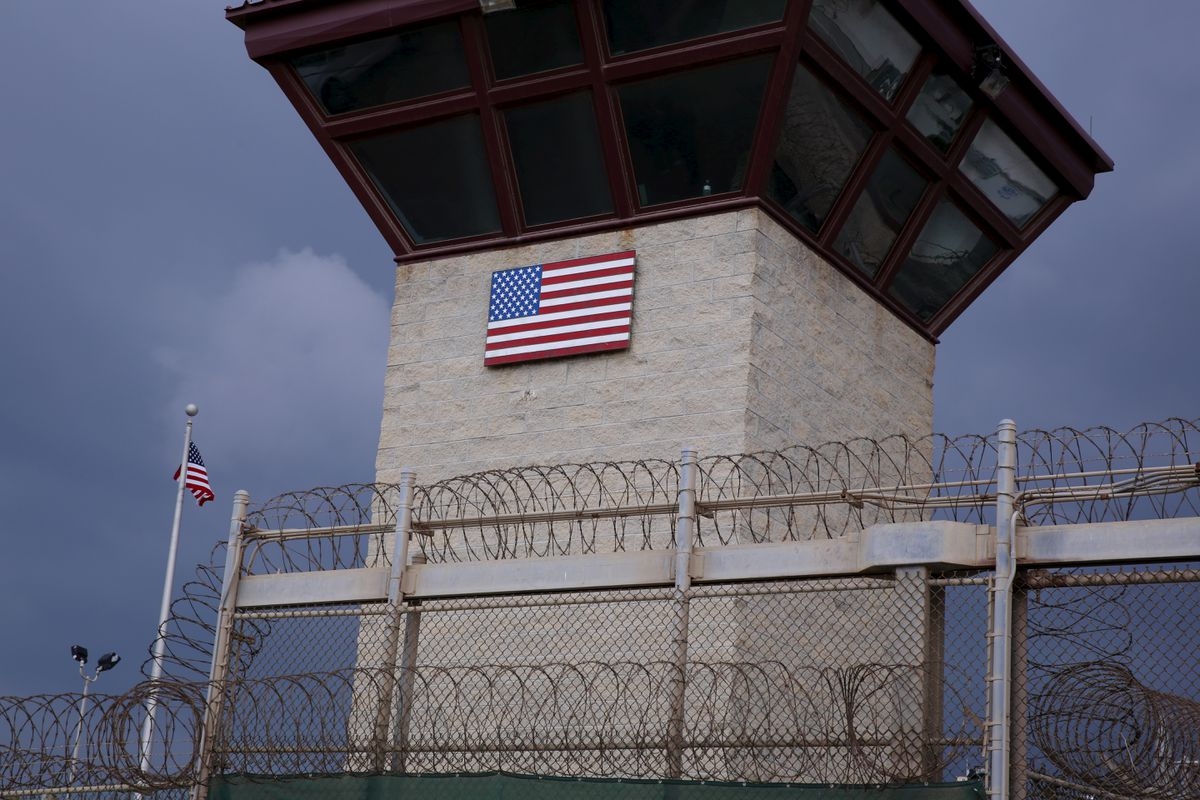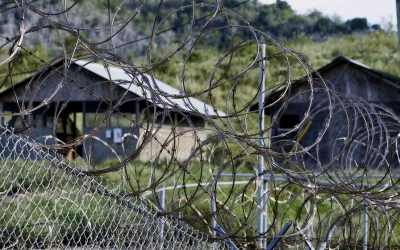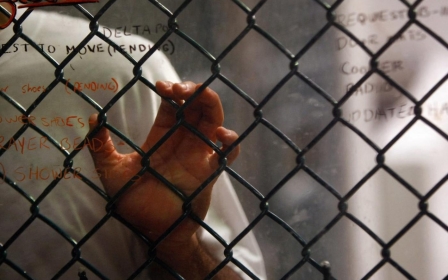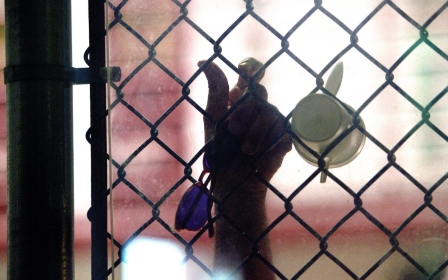Guantanamo Bay: Oldest prisoner freed after being held for 17 years without charge

Human rights organisations have celebrated the release of the oldest illegally held prisoner at the Guantanamo Bay US detention site in Cuba.
Saifullah Paracha, 75, was returned to Pakistan according to the foreign ministry in Islamabad and the US Defence Department.
After more than 17 years in captivity, which Paracha has described as "being alive in your own grave", he was reunited with his family.
The British human rights group Reprieve said that Paracha's detention was an "injustice [that] can never be rectified", accusing US authorities of kidnapping him in the "prime of his life".
New MEE newsletter: Jerusalem Dispatch
Sign up to get the latest insights and analysis on Israel-Palestine, alongside Turkey Unpacked and other MEE newsletters
Paracha was arrested two years after the 11 September 2001 attacks on the US and accused of being an al-Qaeda sympathiser who financed the terrorist group. Paracha has always maintained his innocence, and the US has never provided any evidence to support its claims.
Before being kidnapping by US personnel while in Thailand on a work trip, Paracha was a successful businessman and philanthropist. He then faced state-sponsored forcible abduction in another jurisdiction and was transferred to Afghanistan - which US authorities euphemistically call extraordinary rendition.
"Mr Saif Ullah Paracha, a Pakistani national, who was detained in Guantanamo Bay, has been released and reached Pakistan on Saturday 29 October 2022," a statement by Pakistan's foreign ministry said.
"The Foreign Ministry completed an extensive inter-agency process to facilitate the repatriation of Mr Paracha. We are glad that a Pakistani citizen detained abroad is finally reunited with his family," the statement added.
US not doing enough
Paracha was initially sent to the Bagram air base, a US black site in Afghanistan that developed a notorious reputation for torture and abuse. A year later, without any due process, he was flown to Guantanamo Bay, another US black site in Cuba.
While in US detention, Paracha's health deteriorated, and he suffered two heart attacks. Even though he was unanimously cleared for release in May 2021 by US security agencies, it wasn't until now that US authorities released him.
Paracha's son, Uzair Paracha, was also illegally detained by US authorities and convicted and then later cleared of any crimes, with a judge calling his conviction a "manifest injustice".

Uzair was released and repatriated to Pakistan in 2020.
Several defence lawyers have criticised the Biden administration for not doing enough to release the remaining detainees at the Guantanamo Bay prison, responding to a US official who said the government is working "diligently" to transfer out the detained population.
In a hearing, hosted by the Inter-American Human Rights Commission, several US government officials spoke of the efforts being taken by the Biden administration to release the remaining detainees still held at Guantanamo and provide adequate care to them while they remain detained, while also working to shut down the prison facilities there.
"The US government has repeatedly reaffirmed its commitment to closing the detention facility at Guantanamo," said Thomas Hastings, interim permanent representative of the US to the Organisation of American States.
"And to that end, the current administration engaged in a thorough review involving all relevant departments and agencies to develop an approach for responsibly reducing the detainee population and setting the conditions to close the facility."
It was notable that the officials spoke publicly about the administration's efforts on the issue of Guantanamo, given that the Biden White House did not send anyone to testify during a Senate hearing on the prison held earlier this year.
There are still around 35 people being held at Guantanamo, including Khalid Mohammed, named as "the principal architect of the 9/11 attacks" in the 9/11 commission report.
Middle East Eye delivers independent and unrivalled coverage and analysis of the Middle East, North Africa and beyond. To learn more about republishing this content and the associated fees, please fill out this form. More about MEE can be found here.




